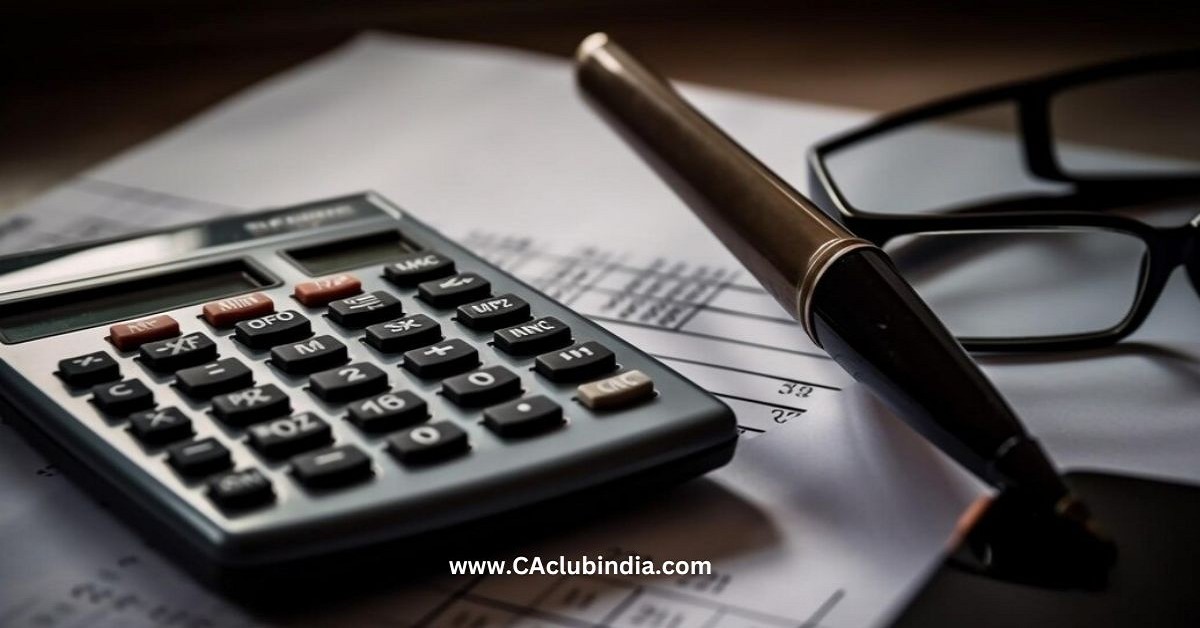Analyzing The Liberal Nature of Buyback Provisions Under Section 115QA And Section 10(34A): Budget 2024's Response To Curb Potential Misuse And Tax Arbitrage

Background
Whether the previous rules for share buybacks under Section 115QA, along with Section 10(34A), were too generous and easy for shareholders, making them a tax-friendly option. It also asks whether the changes made in the 2024 Budget were designed by tax authorities to fix any issues or prevent shareholders from taking unfair advantage of the buyback process.
The provision was being exploited by the People whereby, instead of paying/distributing dividend, the burden was shifted from promoter or shareholders to Company to get benefit through tax arbitrage. And the Company were doing buy back transaction very often and by that way, the effective rate of tax in the hands of the shareholders were reduced to the extent of, tax was required to be paid on such income by Shareholders.
Since the tax was paid by the company on the buyback amount, the investor or the shareholder were able to enjoy tax arbitrage as company was obligated to pay tax on distribution of amount by way of buy back, resulting tax exempt in shareholder's hands. OR it is the case that the Non-Resident Indians (NRIs), including Foreign Portfolio Investors (FPIs) and foreign companies, etc were receiving income on buy back, but were unable to claim the tax benefits as the tax was not paid by them. OR, this amendment was proposed to bring taxability of Buyback at par with taxability of dividend income in the hands of shareholders as it amounts to distribution of accumulated profit.
Let's first discuss the older provision (applicable till 30th September 2024) and its implication to company and its shareholders
As per the older Provision 115QA of the Income Tax Act, 1961, Tax shall be charged on distributed income* by the Domestic company on buy-back of its shares from shareholder at the rate of 23.296% (tax @ 20% plus surcharge @12% and cess @4% as applicable). Any gain arising from the such buy back transaction was made exempt in the hands of the Shareholder by virtue of Section 10(34A) of the Income Tax Act.
*Distributed income" means the consideration paid by the company on buy- back of shares as reduced by the amount, which was received by the company for issue of such shares, determined in the manner as may be prescribed.
Further as per section 68 of the Companies Act 2013, no offer of buy back could be made within a period of one year reckoned from the date of closure of the preceding of the previous buy back, if any.
Rational behind the change
As highlighted in Budget memorandum 2024 that "Both dividend as well as buy-back are methods for the company to distribute accumulated reserves and thus ought to be treated similarly. In addition, there is extinguishment of rights for the shareholders who are tendering their shares in the buy-back by domestic company, to the extent of shares bought back by such company from shareholders. The cost of acquisition of such shares also needs to be accounted for in some manner."
With effect from October1, 2024, now the company is not required to pay the taxes on the buyback of the shares as the whole amount of buyback, which has been received by the shareholder's shall be treated as dividend in their hands and tax is payable by the recipient as per slab rates applicable to them. However, cost of acquisition of shares or cost of investment shall not be allowed to be reduced from the dividend amount received by the shareholders and shall be considered as capital loss, which allowed to be set off against the capital gain only. Unutilised capital loss if any shall be allowed to be carried forward as per the provision of the income tax act. It may sound unreasonable as the tax is being levied on the dividend income in the year of receipt and deferring the capital loss to the year in which one will have capital gain income to sef off with brough forwarded capital losses.
Tax on distributed income of domestic company for buy-back of shares
Effective from 1st October 2024, a new subclause (f) was inserted in section 2(22) of the Income-tax Act, which reads as under: -
"(f) any payment by a company on purchase of its own shares from a shareholder in accordance with the provisions of section 68 of the Companies Act, 2013."
Meaning thereby any money, a domestic company pays to buy back its own shares will be considered as dividend income in the hands of shareholders, who receive that payment from such buy back. This income will be taxed at the regular rates.
Allowability of Deduction against dividend Income
Effective from 1st October 2024, a new proviso was inserted in section 57 of the Income-tax Act regarding the non-deduction of expenditure in respect of dividend income: -
"Provided further that no deduction shall be allowed in case of dividend income of the nature referred to in sub-clause (f) of clause (22) of section 2."
Meaning thereby shareholders cannot deduct any expenses from the dividend income they receive when calculating their total taxable income from other sources.
Capital gain or Capital Loss When company its own shares
A new proviso was also inserted in Section 46A of the Income Tax Act with effect from the 1st day of October, 2024, namely: -
"Provided that where the shareholder receives any consideration of the nature referred to in sub-clause (f) of clause (22) of section 2 from any company, in respect of any buy-back of shares, that takes place on or after the 1st day of October, 2024, then for the purposes of this section, the value of consideration received by the shareholder shall be deemed to be nil."
Meaning thereby when a company buys back its shares, capital loss shall be generated in the hands of the shareholder because the shares are no longer owned and extinguished, and the cost they paid for those shares can't be recovered.
when a shareholder sells other shares later and makes a capital gain, they can use the original cost of all the shares they owned (including the ones bought back by the company and the ones they sold) to calculate their taxable gain. The calculation will be done as explained in the following steps.
(i) deeming value of consideration of shares under buy-back (for purposes of computing capital loss) as nil;
(ii) allowing capital loss on buy-back, computed as value of consideration (nil) less cost of acquisition;
(iii) allowing the carry forward of this as capital loss, which may subsequently be set-off against consideration received on sale and thereby reduce the capital gains to this extent.
Example: (Taken from Budget Memorandum 2024)
- 100 shares bought in 2020 @Rs. 40/- per share
- Total cost of acquisition Rs. 4000/-
- 20 shares bought back in 2024 @Rs. 60/- per share
- Income taxable as deemed dividend Rs. 1200/-
- Capital loss on such buyback (Rs. 40 *20) Rs. 800/-
- Sold 50 Shares sold in 2025 @Rs. 70 per share
- Capital Gain (3500 - 2000) Rs. 1500
- Chargeable capital gain after set off Rs. 700
What if shares are sold in the secondary market instead of tendering the shares under Buy Back scheme?
Selling the shares directly in secondary market would attract short term tax (20%) or long-term tax (12.5%) subject to Exemption on Capital Gain - 1.25 Lacs. Short term or long term is dependent upon the period for which shares are held by the shareholders.
Tax Withholding on Dividend: (from Company Stand point)
Sub-clause (f)" shall be inserted with effect from the 1st day of October, 2024, in section 194 of the Income-tax Act, which read as follows:
The company paying dividend is mandated to deduct TDS under Section 194 of the Income tax Act if the shareholders total dividend in a year exceed INR 5000.If the payee does not provide a Permanent Account number (PAN), tax shall be deducted at the rate of 20%.
Tax Treaty Benefit to Non-Resident
Since the income from share buybacks is proposed to be taxed as a dividend in the hands of shareholders, any treaty benefits related to dividends should also apply subject to the satisfaction of necessary condition given under Provision.








 CAclubindia
CAclubindia
